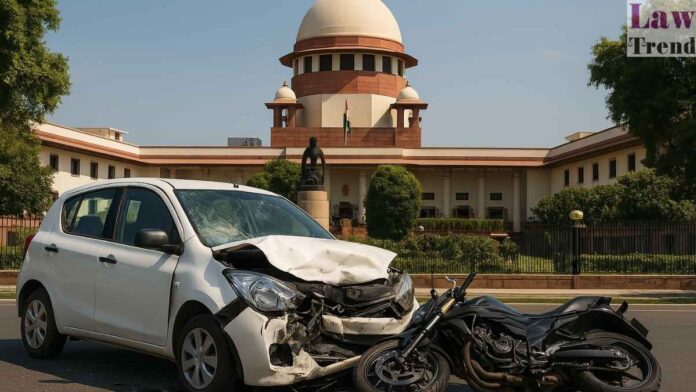The Supreme Court has referred to a larger Bench the question of whether legal heirs of a vehicle owner can claim compensation under Section 163A of the Motor Vehicles Act, 1988, for the owner’s death in a motor accident. A Bench comprising Justice Sudhanshu Dhulia and Justice K. Vinod Chandran doubted the correctness of several
To Read More Please Subscribe to VIP Membership for Unlimited Access to All the Articles, Download Available Copies of Judgments/Order, Acess to Central/State Bare Acts, Advertisement Free Content, Access to More than 4000 Legal Drafts( Readymade Editable Formats of Suits, Petitions, Writs, Legal Notices, Divorce Petitions, 138 Notices, Bail Applications etc.) in Hindi and English.




